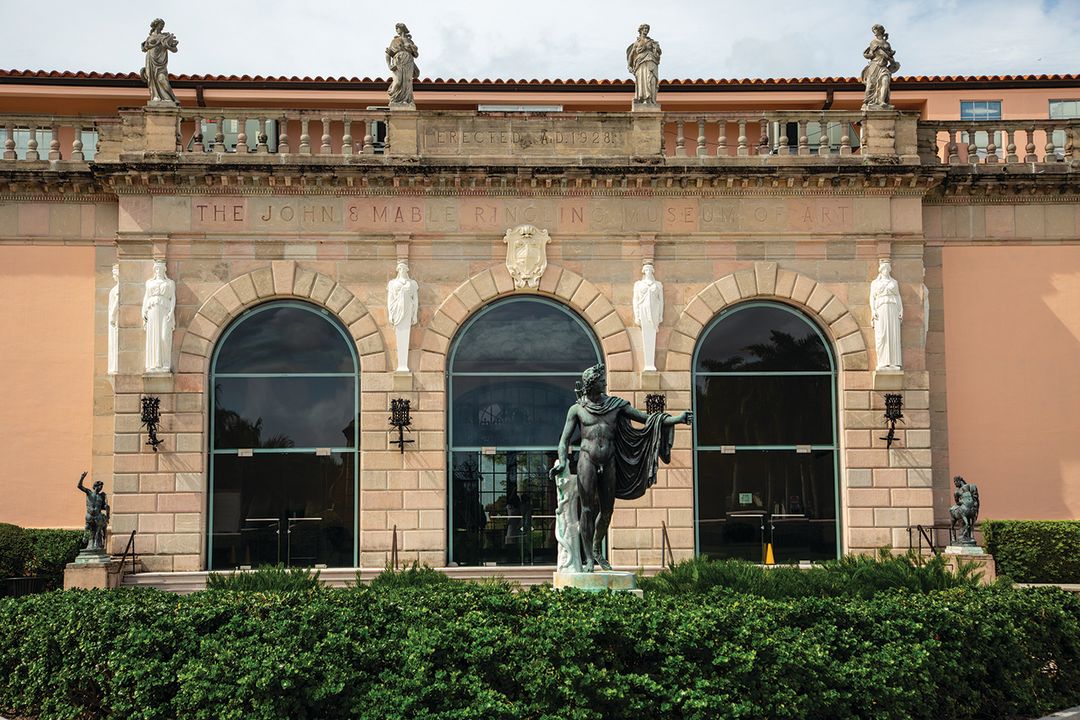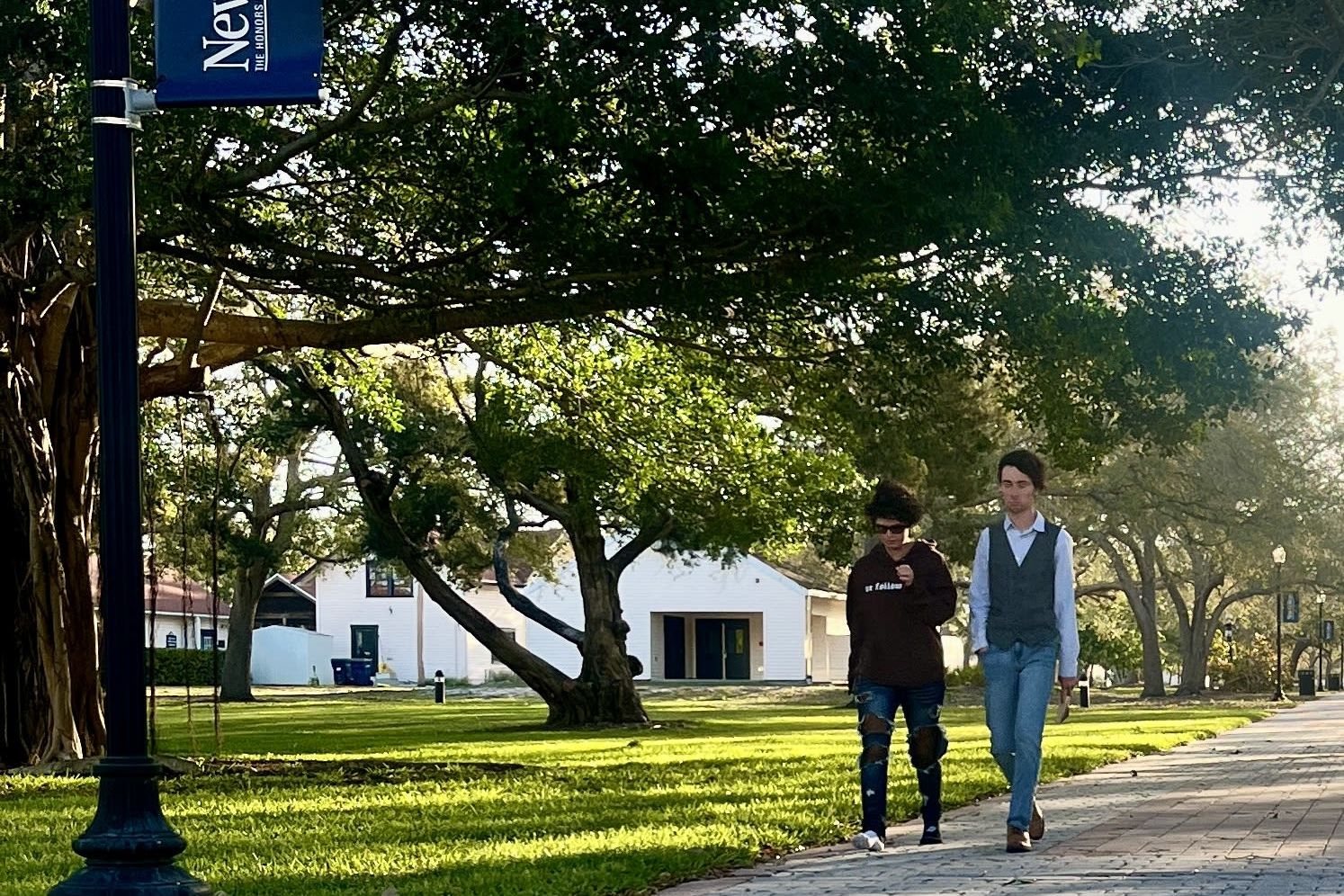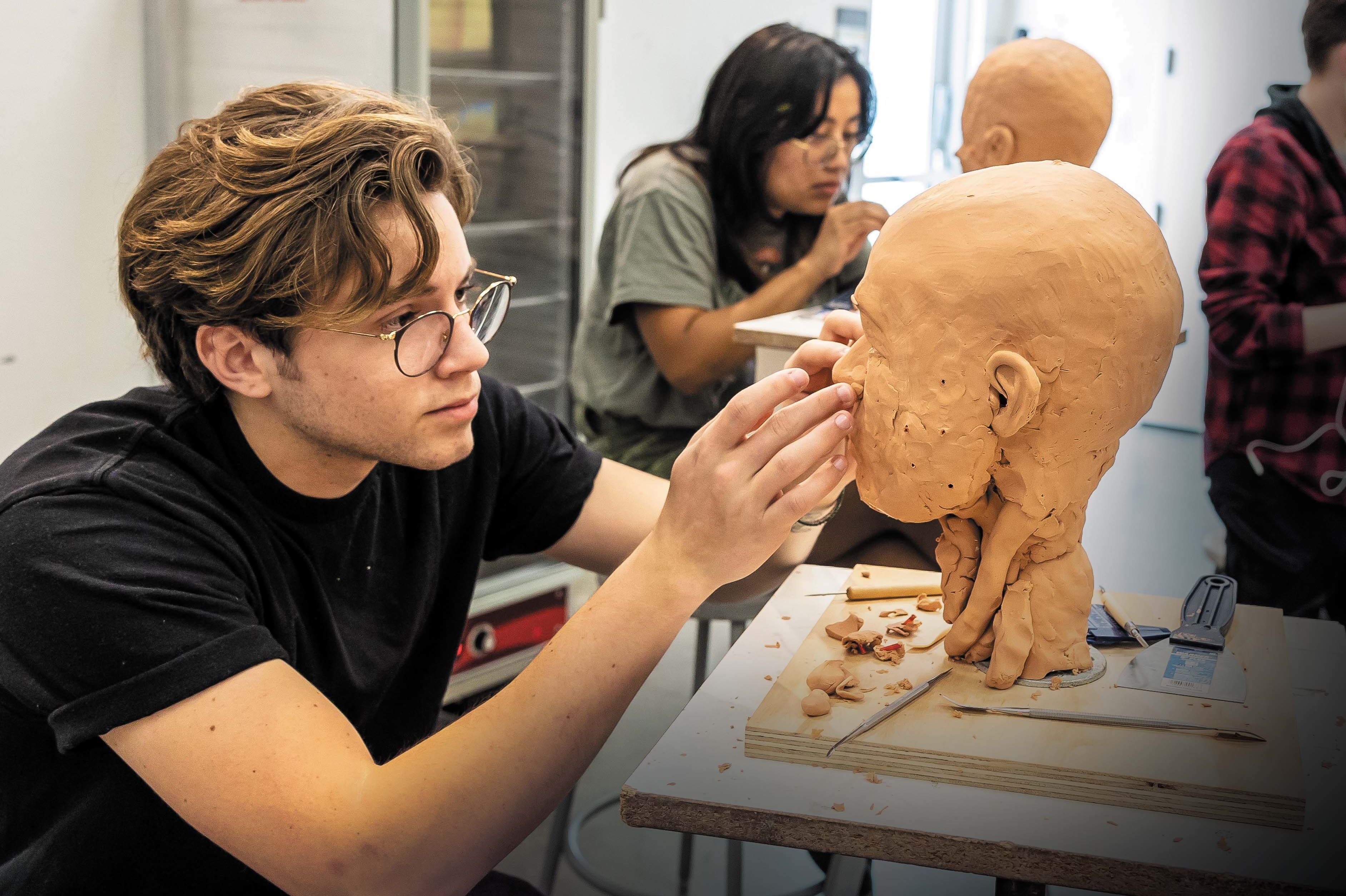A Newly Formed Group Is Working to Oppose New College's Proposed Takeover of the Ringling Museum

Image: Jenny Acheson
A proposal by Gov. Ron DeSantis to transfer control of Sarasota’s cultural icon, the John and Mable Ringling Museum of Art, from its 25-year partnership with Florida State University to New College of Florida has alarmed a group of longtime Ringling supporters, donors and foundation chairs, and trustees.
Those concerned have formed a new organization called Citizens to Protect the Ringling, and have sent a letter to Ringling patrons, FSU alumni, locals and visitors detailing their criticisms of the proposal, which is slated to be discussed when the Florida Legislature meets for its annual session in Tallahassee next week.
“As former Board Chairs, Trustees and Donors of The Ringling Museum, we are writing you, our fellow citizens, about the Governor’s proposal to allow New College to take over The John & Mable Ringling Museum of Art," begins the letter. "It is clearly a waste of taxpayer resources to disrupt a proven Florida State University-Ringling partnership that has delivered significant benefits to our students, state and local community.”
The letter goes on to cite potential problems that could arise if the transfer is approved. Those include the costs that could come with transferring stewardship of the museum to an institution that is "much smaller than either FSU or The Ringling," which could "bring protracted lawsuits by donors and others." Other potential pitfalls outlined in the letter include the potential sale of collections and buildings and disruptions to programming, donor relationships and academic partnerships.
"[New College president Richard] Corcoran’s attempt to take over the Ringling is like a guppy trying to swallow a whale,” says Nancy Parrish, a former chair of the John & Mable Ringling Museum of Art Foundation and a leader of the new Citizens group. “It’s an irresponsible act. I’ve requested meetings with some of our legislators. People are horrified.”
“It’s a rushed proposal," she adds. "At the very least, it certainly needs a blue-ribbon commission to study the impact—cultural, economic, on the infrastructure, the facilities required—and to include donors and the community in some way before any decisions should be made. We don’t understand the rush.”
“We don’t know Corcoran’s reason for wanting to take over the Ringling, but we do know that New College lacks the capacity to steer this vast cultural complex," she continues. "Corcoran just 24 months ago embarked on this ambitious, yet-to-be-proven plan to transform New College, which requires focus, time, more capital and professional resources. Then to begin to take on something as monumental as trying to subsume an organization larger than itself feels like a recipe for failure.”
The Ringling property, which contains 66 acres of land, includes the Ca’ d’Zan, the Museum of Art, the Circus Museum, the Historic Asolo Theater, bayfront gardens and other buildings and infrastructure. The museum's longstanding partnership with FSU has also been a collaboration with the Asolo Repertory Theater and the FSU/Asolo Conservatory for Actor Training in Sarasota. According to Parrish, the Sarasota community and local FSU alumni have raised roughly $200 million for FSU’s endowment with the understanding that the partnership would continue for another 25-plus years.
“Corcoran’s argument is that being next door to the Ringling is the main reason for this risky proposal," says Parrish. "My response is that geographical proximity is an inadequate and costly reason to risk the independence, cultural heritage and future of the Ringling.”
Citizens to Protect the Ringling also argues that the transfer would damage key donor relationships. According to the organization's letter, some donors are already “signaling an end to contributions and others plan to remove The Ringling from their wills.” The letter also cites a potential “risk to future acquisitions and donations.”
The letter has been signed by at least five former chairs of the Ringling foundation, as well as half a dozen former board members and donors. Parrish says about 20 people are “actively working" on the issue. Those individuals "all feel an urgent need to let our legislators know and let others statewide know about this proposal and its adverse implications to, potentially, the art collection, to tourism and to the community," says Parrish.
Corcoran and New College declined to comment directly on Citizens to Protect the Ringling. When asked for comment, a representative from the college pointed Sarasota Magazine to an opinion column by Corcoran that appeared last week in the Observer.
In that piece, Corcoran stated that the transfer of stewardship would be “an alignment that strengthens Sarasota’s role as Florida’s premier hub for arts, education and scholarship, while ensuring that this historic and cherished museum remains deeply connected to and preserved by the community that has shaped it for nearly a century.” He described such a move as “a collective win” for Sarasota, the Ringling, New College and Florida, arguing that it would ensure "the museum’s legacy remains deeply intertwined with Sarasota’s cultural and educational future" and open "new doors for collaboration with other institutions across Florida, expanding research partnerships, student engagement and statewide academic initiatives in the arts and humanities."
Citizens to Protect the Ringling is examining other ways to gain community support for its stance through Zoom meetings, in-person gatherings and outreach to multiple constituencies. “People strongly believe that the museum should be independent,” says Parrish. “And I think citizens can make the difference as to whether or not we can succeed in this mission. Because when our elected officials hear from their community, they tend to respond.”



